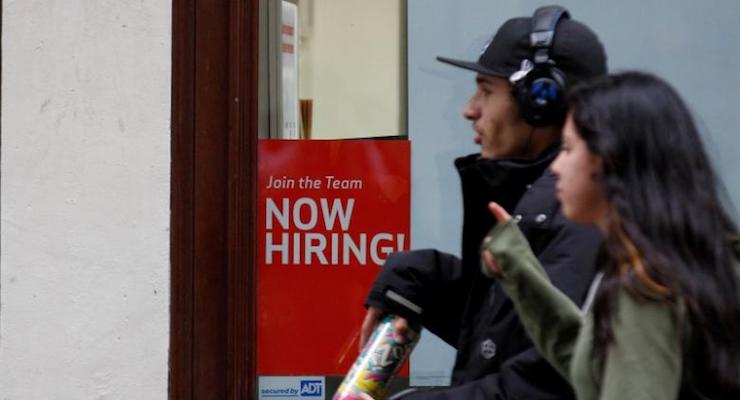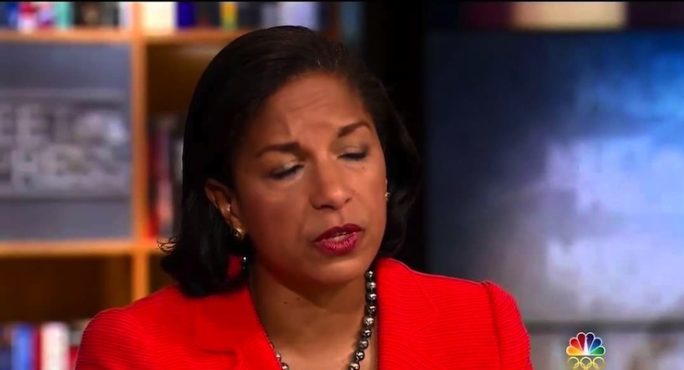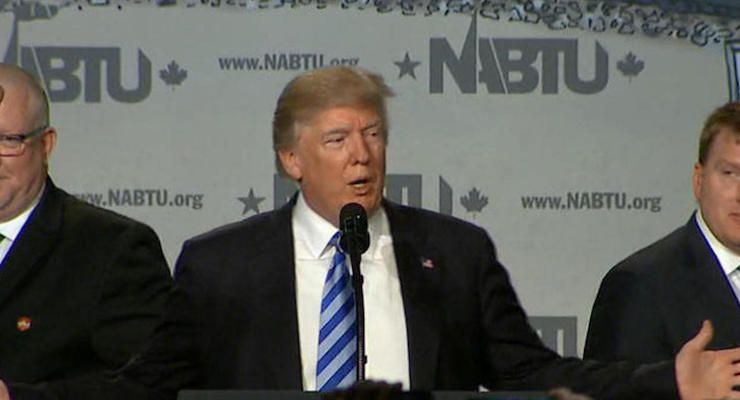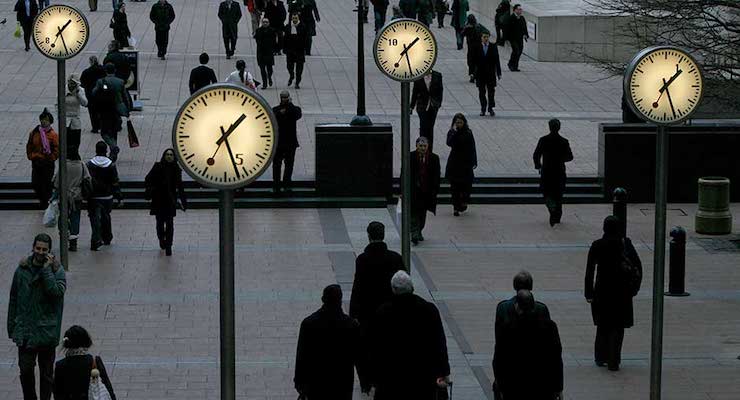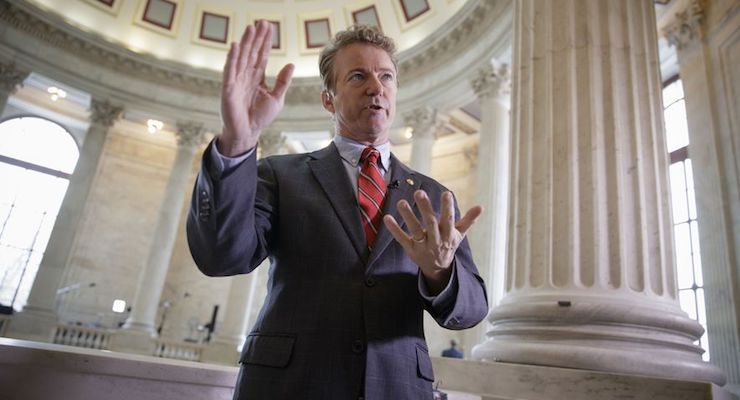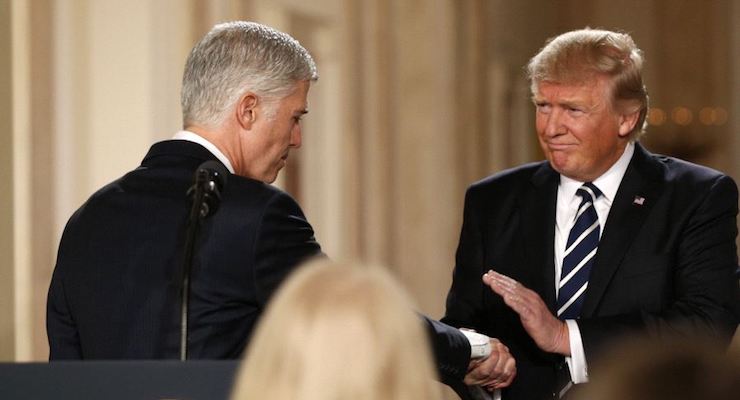ISM Non-Manufacturing Index (NMI) Cools in March to 5-Month Low

A service sector employee sits at his desk. (Photo: REUTERS)
The Institute for Supply Management (ISM) Non-Manufacturing Index (NMI) grew for the 87th consecutive month, but cooled to a 5-month low at 55.2% in March. Of the 18 non-manufacturing industries, 15 reported growth in March while 3 reported contraction.
“The sector continues to reflect growth; however, the rate of growth has declined since last month,” Anthony Nieves, Chair of the Institute for Supply Management (ISM) Non-Manufacturing Business Survey Committee. “The majority of respondents’ comments indicate a positive outlook on business conditions and the overall economy. There were several comments about the uncertainty of future government policies on health care, trade and immigration, and the potential impact on business.”
| ISM® NON-MANUFACTURING SURVEY RESULTS AT A GLANCE COMPARISON OF ISM® NON-MANUFACTURING AND ISM® MANUFACTURING SURVEYS* MARCH 2017 |
|||||||||
|---|---|---|---|---|---|---|---|---|---|
| Non-Manufacturing | Manufacturing | ||||||||
| Index | Series Index Mar |
Series Index Feb |
Percent Point Change |
Direction | Rate of Change |
Trend** (Months) |
Series Index Mar |
Series Index Feb |
Percent Point Change |
| NMI®/PMI® | 55.2 | 57.6 | -2.4 | Growing | Slower | 87 | 57.2 | 57.7 | -0.5 |
| Business Activity/Production | 58.9 | 63.6 | -4.7 | Growing | Slower | 92 | 57.6 | 62.9 | -5.3 |
| New Orders | 58.9 | 61.2 | -2.3 | Growing | Slower | 92 | 64.5 | 65.1 | -0.6 |
| Employment | 51.6 | 55.2 | -3.6 | Growing | Slower | 37 | 58.9 | 54.2 | +4.7 |
| Supplier Deliveries | 51.5 | 50.5 | +1.0 | Slowing | Faster | 15 | 55.9 | 54.8 | +1.1 |
| Inventories | 48.5 | 52.0 | -3.5 | Contracting | From Growing | 1 | 49.0 | 51.5 | -2.5 |
| Prices | 53.5 | 57.7 | -4.2 | Increasing | Slower | 12 | 70.5 | 68.0 | +2.5 |
| Backlog of Orders | 53.0 | 54.0 | -1.0 | Growing | Slower | 2 | 57.5 | 57.0 | +0.5 |
| New Export Orders | 62.5 | 57.0 | +5.5 | Growing | Faster | 2 | 59.0 | 55.0 | +4.0 |
| Imports | 56.5 | 51.0 | +5.5 | Growing | Faster | 3 | 53.5 | 54.0 | -0.5 |
| Inventory Sentiment | 65.0 | 64.5 | +0.5 | Too High | Faster | 238 | N/A | N/A | N/A |
| Customers’ Inventories | N/A | N/A | N/A | N/A | N/A | N/A | 47.0 | 47.5 | -0.5 |
| Overall Economy | Growing | Slower | 92 | ||||||
| Non-Manufacturing Sector | Growing | Slower | 87 | ||||||
* Non-Manufacturing ISM® Report On Business® data is seasonally adjusted for the Business Activity, New Orders, Prices and Employment Indexes. Manufacturing ISM® Report On Business® data is seasonally adjusted for New Orders, Production, Employment and Supplier Deliveries.
** Number of months moving in current direction.
The Institute for Supply Management's Non-Manufacturing Index
